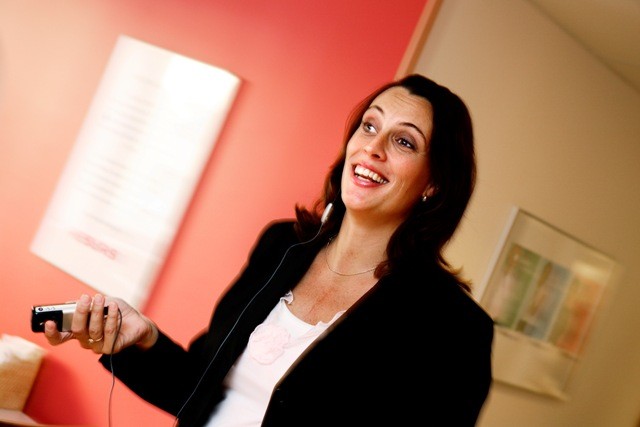Iceland and Sweden consider establishing gender quotas for companies

|
Sigridur Ingibjörg Ingadottir, member of the Icelandic parliament, is one of the persons who threatens both listed and state-owned companies in Iceland with gender quotas. Similarly to other Nordic countries, men and women are currently equally represented in Alding if the ratio 40/60 can be considered equal. In a situation like this, the representation of women in leading positions in the business world has surfaced in Iceland. Equality does seem to prevail in the parliament and in companies where the state is a shareholder, but more than 90 percent of the supervisory board members of companies in the small island country are men. The difference in salaries is even greater. In 2007 women in Iceland earned about half the amount paid to men for the same work. The salary difference was even greater if the woman was married. |
| Iceland’s Minister of Gender Equality Árni Páll Árnason confirmed that establishment of gender quotas is possible as he is not happy with the slow developments in the business world. https://www.youtube.com/watch?v=_an4qyYmhhU The former gender quality representative and lawyer Claes Borgström was one of those who found that quotas would be the easiest way of achieving equality. “This does not mean a fair society,” emphasised Borgström and added that quotas do not offer a solution to the problem and their use needs to be analysed. Men in the focus Borgström noted that the focus should be turned on men in the Nordic countries where equality has been achieved, at least in parliamentary politics. “Women are flexible and men are not,” said the social democrat and lawyer. Women have strongly moved from homes to working life whilst men have not done the opposite and dedicated more time to their home and families instead of focussing solely on their careers. Successful businessmen have had a strong support system consisting of assistants and housewives, which has made committing themselves to work easier for them, but women do not have anything like that, admitted Professor Anita Göransson of the University of Linköping in Sweden. Göransson has studied power from the aspect of gender in Nordic countries for many years. Women who have managed to climb high on the career ladder are usually single mothers or women who have divorced and remarried, this time a man who has a similar position of power in society. Norway is currently an exception among Nordic countries. In 2006 the country enforced a law which stipulates that 27.8-50 percent of the supervisory board members of listed or state-owned companies, depending on its size, must be women. The law attracted a lot of attention and was severely criticised in the whole world. Some people believed that companies would move abroad because of the quota or even close their doors for good. One of the fears was that the competency of management boards would decrease as companies would be forced to hire incompetent women on their boards because of the law. “None of these things happened,” confirmed Marit Hoel, CEO and founder of the Norwegian Center for Corporate Diversity to more than fifty listeners at the business breakfast in Tallinn this past November. The business breakfast was organised by the Estonian office of the Nordic Council of Ministers and the chambers of commerce and industry of Nordic countries in Estonia. The many sides of diversity When speaking about diversity, Hoel does not focus solely on gender, but also age, skills, marital status, nationality, origin, talent, life experience, values, sexual orientation, education, etc. Hoel says that gender is simply the tip of the iceberg that has received most of the attention. “There should always be people on the supervisory boards of companies who are ready to ask uncomfortable questions and thereby guarantee greater transparency,” explained Hoel. In Nordic countries, transparency is an issue of principle not only for shareholders, but also for the supervisory boards themselves so that they can understand the direction in which the business moves and how they need to act. The importance of transparency and diversity is well illustrated by the pre-recession time in Iceland when supervisory boards consisted mainly of men, there was no clear overview of their activities and there was usually no one who bothered to answer questions. The crisis could have been milder if more women had been working in the financial sector of Iceland, because women are more conservative, claim Nordic scientists. Studies have also shown that companies who have more women on their management or supervisory boards or where the ratio of men and women is equal are more successful in terms of economic performance. Start at home The factors that have caused these results must be explained in future studies. Nordic scientists are also planning to take a deeper look at the question why women do not rise to top-ranking positions in companies as often as men – do they lack ambition, do their face obstacles on the career ladder, etc.? The focus should be taken off senior managers and pointed at women working in lower-ranking positions. The former gender equality representative of Sweden Borgström was right when he said that everything starts in the nursery school or even earlier. It is all about the education and values that parents pass on to their children – values in society. Quotas are not a solution, but a method that helps to achieve the result quicker. Nordic countries are not prepared to wait for decades or even centuries to see women becoming equal to men also in business. |


